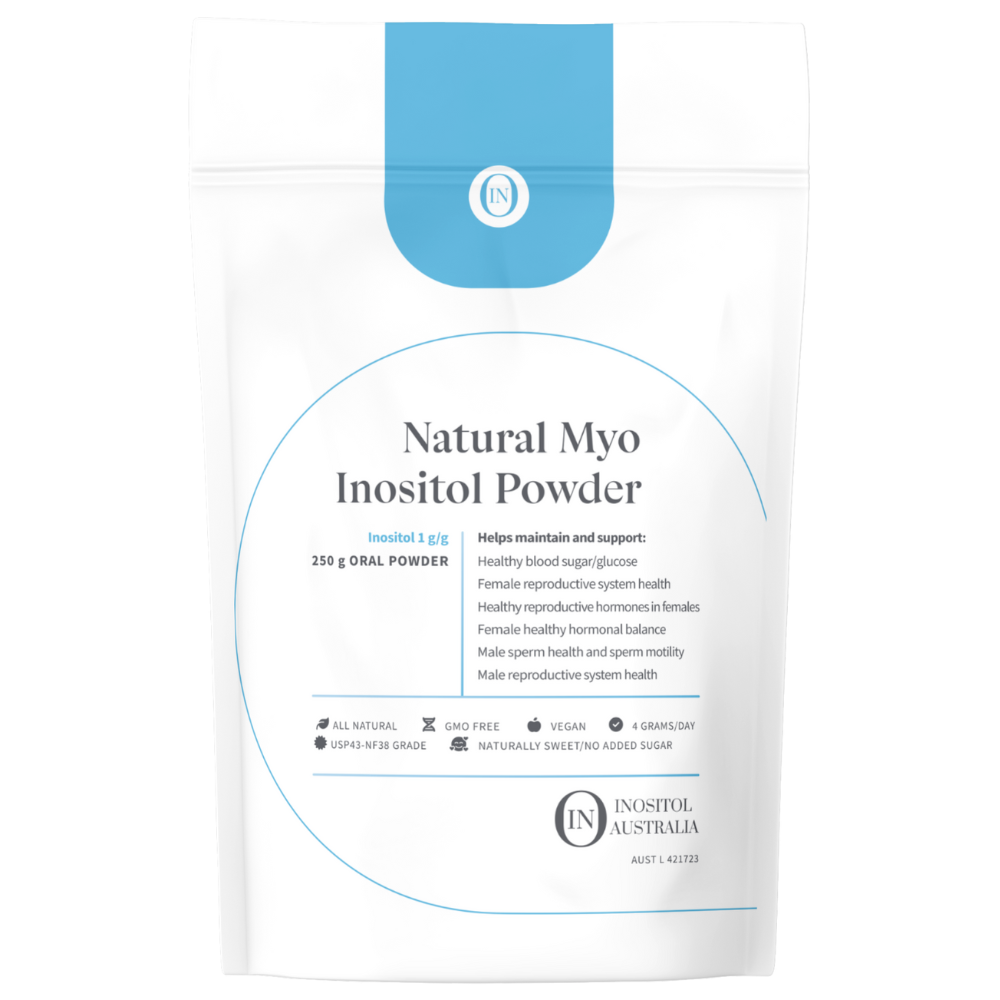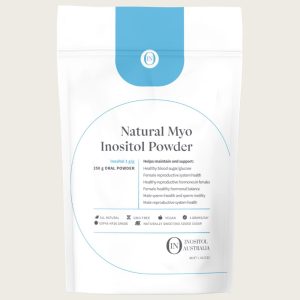
Every day we consume numerous sugars, vitamins, and minerals that are vital to the healthy functioning of our body. We are told to consume a balanced diet, but do we even know what it is that we are ingesting?
The fruits, vegetables, nuts, and proteins that we consume are nutrient-dense and necessary for healthy bodily function. If we eat a well-balanced diet, then we should not need to take any additional supplements. Of course, supplements may be required if our body does not produce or consume enough of a particular vitamin or mineral.
Sometimes, vitamin B8, also known as Inositol, is not produced enough in the body. Or, a person has an underlying condition that requires more vitamin B8 to stay in balance.
Vitamin B8 or Inositol has an impact on our cell’s vital functions, and it influences our body’s insulin response as well as some of the hormones associated with mood and cognition. Read on to see how your diet might benefit from supplementing with vitamin B8:
What is Vitamin B8?
According to WebMD, vitamin B8 is known by a range of other names, including but not limited to, Inositol. Some online sources claim that vitamin B8 is actually Biotin. Here’s an example from this source, in which one sentence claims that vitamin B7 is both Inositol and Biotin. While sources might mistakenly make the claim that vitamin B8 is Biotin, it’s not. Vitamin B7 is Biotin and Vitamin B8 is Inositol.
The use of the term “vitamin” is also misleading, as vitamin B8 is actually not a vitamin. It is a vitamin-like substance and is a sugar that is both produced in the body and consumed through the foods we eat or through supplementation.
The most common plants and animals that vitamin B8 is found in include:
- Whole grains
- Nuts
- Legumes
Vitamin B8 or Inositol is not considered by the U.S. Department of Agriculture to be an essential nutrient. However, on average, approximately 1 gram of B8 is consumed daily naturally through our diet.
There are different forms that vitamin B8 might appear in, known as isomers, but the two most common are Myo-Inositol and D-chiro-inositol.
Inositol shows positive results in affecting certain bodily chemicals. Vitamin B8 or Inositol might improve mental conditions, insulin function, and PCOS symptoms.
Benefits of Supplementing with Vitamin B8
Right now there are several prescriptive methods for taking vitamin B8. As mentioned above, vitamin B8 is mostly taken by an individual with polycystic ovary syndrome or PCOS. In this case, it might be best to take a combination (typically 40:1) of Myo-Inositol and D-Chiro-Inositol to regulate hormone production, control blood pressure, and improve the function of the ovaries.
This supplement is also useful for improving metabolic syndrome, which is a group of symptoms that could adversely affect one’s health. These symptoms include insulin resistance, high blood pressure, cholesterol, and triglyceride levels. These issues present most commonly in post-menopausal women, but this is not always the case.
People with some mental conditions are also recommended to take vitamin B8 as it might regulate some of the hormones associated with mood. Someone with panic disorder (anxiety marked by intense fear), anxiety, obsessive-compulsive disorder, and panic attacks might benefit from taking vitamin B8. When taking this supplement for serious mental health conditions, consult with your doctor as the supplement may need to be taken in extremely high doses and this supplement should not replace medication unless doctor recommended.
Vitamin B8 might be useful for fertility-related issues. It might help reduce preterm birth, especially when taken with folic acid, and for those women who have PCOS. It might also increase the chances of fertility since it regulates both insulin resistance and the ovarian cycle.
Some side effects of taking vitamin B8 isomers include weight loss. Weight gain could be contributing to health conditions like PCOS, insulin resistance properties, infertility, and mental health issues.
Supplementing Your Lifestyle with Vitamin B8
Vitamin B8 or Inositol is not considered an essential vitamin and cannot always replace prescription medication. However, almost any lifestyle can benefit from vitamin B8 supplementation.
One of the biggest benefits of vitamin B8 is that there are virtually no side effects. So, almost anyone can take vitamin B8 to improve bodily functions.
Even if you don’t have any of the conditions listed above, vitamin B8 can promote healthy blood pressure and insulin resistance properties. Your body might show signs of improved insulin upkeep (being able to process sugars better) and better heart function. It might also regulate ovarian function for those with a female reproductive system. This might decrease PMS symptoms and improve period cycles.
For those with anxiety or some issues with mental cognition, it is easy to supplement a diet with vitamin B8. Try taking the supplement in small doses daily to see if it improves self-esteem issues, and then speak with a doctor about upping the dosage. Some research says that side effects, anxiety and depression might get worse after a few weeks, or you might need to take the supplement by another method.
Taking vitamin B8 should never replace a healthy lifestyle. In addition to taking vitamin B8, also consider improving your diet by ingesting more leafy greens, vegetables, and fruits, drinking plenty of water, getting enough sleep, and exercising often if possible. If you are already doing these things, then great!
Improving Your Life With Inositol, Vitamin B8
If our hormone production is a little off and our body is not processing insulin as well as it should, then we may notice small changes. We may feel a little more lethargic, or our mental health is decreasing. Supplementing with vitamin B8 can improve our normal bodily functions.
Additionally, if you are trying to get pregnant and have had little success, then you might be experiencing some hormonal changes. It can be hard to identify why infertility is occurring, but supplementing with something as simple as vitamin B8 could provide the regulation that you need. In vitro fertilization (IVF) is one option, but talk to your doctor first to see if vitamin B8 can improve your fertility chances.
A vitamin B8 supplement is simple to take and can easily be assimilated into your vitamin supplement program. Consider ingesting vitamin B8 in the powder form, which is available through Inositol Australia. The powder form allows you to take the exact dose you need at a more affordable price.
See how Inositol Australia’s powder supplement can improve your life today!
Resources
WebMD. (2020). Inositol: Uses, Side Effects, Interactions, Dosage, and Warning. Retrieved Dec 18, 2020.
Inositol Australia. (2020). Vitamin B8 | Myo Inositol Powder. Retrieved Dec 18, 2020.
Inositol Australia. (2020). Myo-inositol Effects on PCOS. Retrieved Dec 18, 2020.
Inositol Australia. (2020). How To Treat Insulin Resistance Naturally. Retrieved Dec 18, 2020.
SFGate. (2020). Vitamin B-8 Food Sources & Benefits. Retrieved Dec 18, 2020.
Inositol Australia. (2020). What Foods Are High In Inositol. Retrieved Dec 18, 2020.
Alternative Medicine College of Canada. (2020). The Dream Team: Vitamins B7 and B8. Retrieved Dec 18, 2020.
Croze, M. L., & Soulage, C. O. (2013). Potential role and therapeutic interests of myo-inositol in metabolic diseases. Biochimie, 95(10), 1811-1827. Retrieved Dec 18, 2020.
Fux, M., Levine, J., Aviv, A., & Belmaker, R. H. (1996). Inositol treatment of obsessive-compulsive disorder. American Journal of Psychiatry, 153(9), 1219-1221. Retrieved Dec 18, 2020.
Aviv, A., Levy, D., & Belmaker, R. H. (1995). Double-blind, placebo-controlled, crossover trial of inositol treatment for panic disorder. American Journal of Psychiatry, 152, 1084-1086. Retrieved Dec 18, 2020.
Cirillo, F., Catellani, C., Lazzeroni, P., Sartori, C., Tridenti, G., Vezzani, C., … & Street, M. E. (2020). HMGB1 is increased in adolescents with polycystic ovary syndrome (PCOS) and decreases after treatment with myo-inositol (MYO) in combination with alpha-lipoic acid (ALA). Gynecological Endocrinology, 1-6. Retrieved Dec 18, 2020.
Yaylali, A., Bakacak, M., & Bakacak, Z. (2020). The efficacy of different insulin-sensitizing agents on treatment outcomes in patients with polycystic ovary syndrome who underwent in-vitro fertilization: A retrospective, record-based, comparative study. Journal of Gynecology Obstetrics and Human Reproduction, 102006. Retrieved Dec 18, 2020.
Chengappa, K. R., Levine, J., Gershon, S., Mallinger, A. G., Hardan, A., Vagnucci, A., … & Kupfer, D. J. (2000). Inositol as an add‐on treatment for bipolar depression. Bipolar Disorders, 2(1), 47-55. Retrieved Dec 18, 2020.




